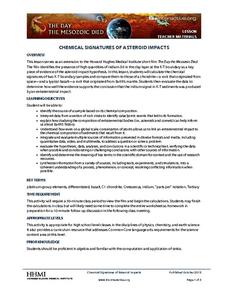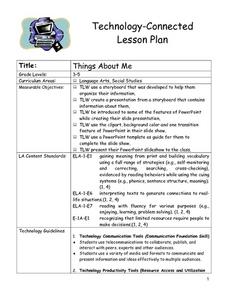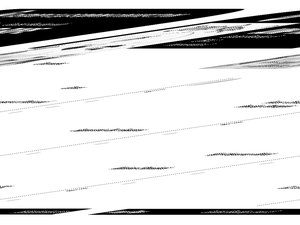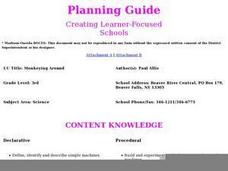Curated OER
Gopher It! Exploring German Cyberspace
Students are introduced to the Gopher research tools. In groups, they compare and contrast English and German services on the gopher servers. They create their own dictionary of computer related terms and spend time downloading picture...
Curated OER
Understanding the 1855 Census Database
Use data from the 1855 New York census to better understand the Irish immigrant experience during the late 19th century. Young historians analyze information from the census and build three hypotheses regarding the residents of the Five...
Curated OER
Bud, Not Buddy: Guided Imagery Exercise
Develop readers’ awareness of the visual power of language with a guided imagery exercise. Set the stage and create the mood with dim lights, soft music and potpourri. Then read the provided section of Bud, Not Buddy. Next, invite...
Curated OER
Aesop's Fables
Regale your class with renditions of Aesop's fables from the engaging, and beautifully illustrated book by Jerry Pinkney. Guide discussion to practice prediction, compare and contrast various stories, explore the connections between the...
Howard Hughes Medical Institute
Chemical Signatures of Asteroid Impacts
What killed the dinosaurs and how do scientists know? Your high schoolers can examine these fascinating questions with a geochemical lens using the engaging 33-minute video, the accompanying data interpretation, and some thoughtful...
Baylor College
Food: The Math Link
Enrich your study of food science with with these math worksheets. They offer a variety of food-related word problems that are great practice for multiplying, identifying fractions, estimating length, and performing calculations...
Curated OER
Story of a Bluebird
First graders build comprehension skills. In this reading comprehension lesson, 1st graders activate prior knowledge and create text to self connection in preparation for reading. Students read Story of a Bluebird and complete a...
Curated OER
What Difference Does it Make How Old I Am?
Students identify subtle messages advertisers send (often unintentionally) about age in the course of trying to sell products; to analyze the consequences, both positive and negative, those messages have on the American audience; to...
Curated OER
My Personal Connections
In this language arts worksheet, 5th graders find the personal connections that are made with the text and write down the words from the book.
Curated OER
Using Scholastic News to Introduce the Net
Third graders log on to the net, type in the address for Scholastic and browse the subjects for the week. They select one area of interest and generate five interesting facts about the article.
Curated OER
A Weekend with Wendell
Students discuss the term prediction. In this language arts lesson, students predict what will happen next by using the turn & talk strategy. Students chart the predictions each one makes.
Curated OER
From Home to Nome
Third graders develop and create an electronic portfolio on their hometown, school, and themselves to send to a school on the Iditarod Trail. They gather information from the Internet, printed materials, and a digital camera.
Curated OER
Things About Me
Students watch as the teacher explains how to use a storyboard to plan a PowerPoint presentation. They examine how to use clip art, background colors, and at least one transition before creating a PowerPoint presentation according to the...
Curated OER
Why Predict?
Twelfth graders examine the process of predicting. They observe a fine art transparency, discuss their predictions about the artwork, identify the types of predictions made during a weather broadcast, and evaluate headlines from...
Curated OER
The Lady or the Tiger
Eighth graders make predictions on the topic of a story based on the title and the preview. After reading the story, they analyze what took place and create a graphic organizer explaining what they think would have happened had the...
Curated OER
How To Use the Internet To Make Student Glossaries
Middle schoolers use an internet dictionary to produce a glossary of words related to a particular subject area being studied. They choose the correct meaning of the word for their glossary, based on it's relationship to the subject...
Curated OER
Reading for Meaning
Students answer questions to a worksheet called Connect with Cultural Connections in order to read for meaning. In this read for meaning lesson plan, students read and answer 5 comprehension questions.
Curated OER
Guided Reading: Jump Rope
Young scholars blend phonemes to decode words. For this guided reading lesson, students evaluate different comprehension strategies to aid reading. Young scholars make predictions based on picture clues and use patterned sentences...
Curated OER
Inventing and Presenting Unit 2: Effective Speeches and Building the Invention
Pupils identify the characteristics of effective speeches. Students find elements of good speeches in the text and in the delivery of model speeches. Pupils build a working three-dimensional model of an invention or an actual invention...
Curated OER
PET Review
In this language review worksheet, students read about James Cook and complete a fill in the blanks inside the paragraphs about him, read about the western alphabet and complete multiple choice questions, and more. Students complete 5...
Curated OER
"Mysteries"
In this reading comprehension worksheet, learners read a short piece of text entitled "Mysteries" and answer five reading comprehension multiple choice questions.
Curated OER
The "Ad" Survey-What Makes a Print Ad Convincing?
Learners develop opinions from a variety of materials, recognize and analyze bias, propaganda and stereotypes, and evaluate effectiveness of print advertisements.
Curated OER
Monkeying Around
Third graders study machines. They watch a video about and identify and chart machines they find at home and at school. They design and build simple and compound machines, create an advertisement for them and attempt to sell them at the...
Curated OER
Anticipation Guide Teacher Copy: The Catcher in the Rye
“You don’t have to think too hard when you talk to teachers.” Or so says Holden Caulfield. Challenge his assumption by asking your readers to think about and respond to some of the assertions of Salinger’s narrator. Should a...























